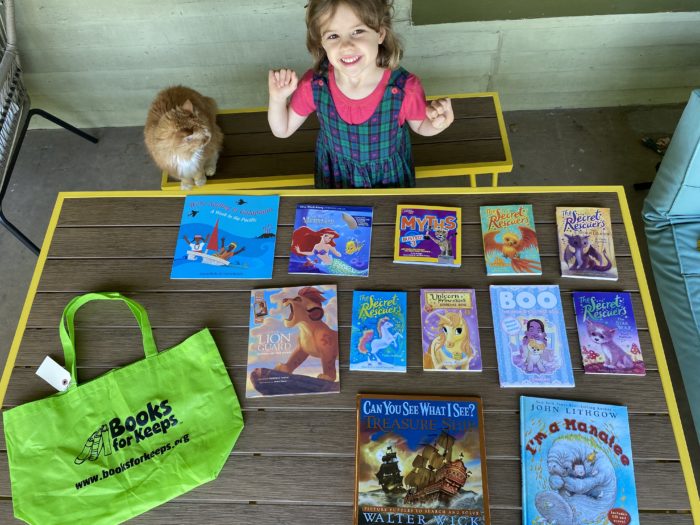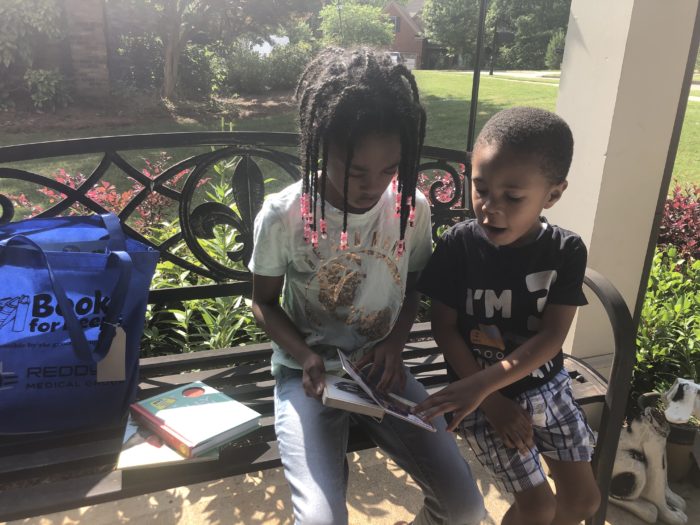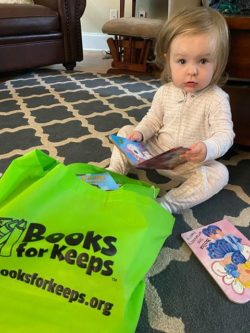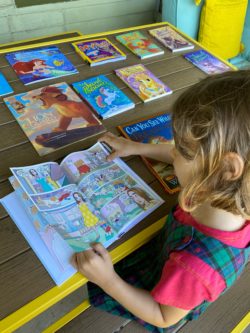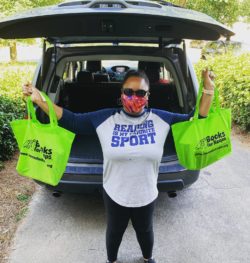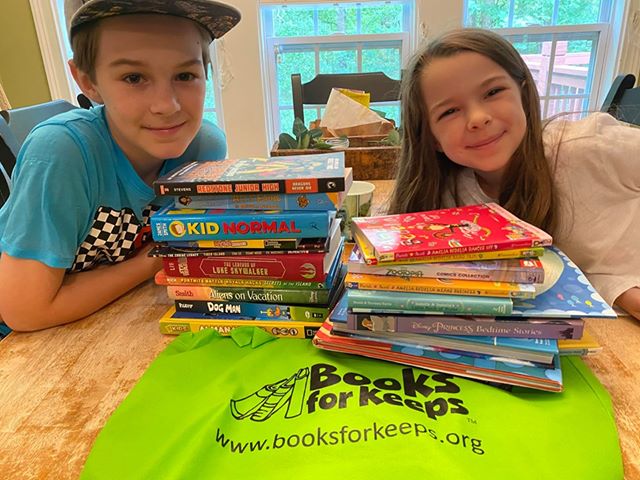
Georgia-based Books for Keeps pivots, innovates, & delivers 68,500 books to students for summer reading
The following is a guest blog post written by our partner Books for Keeps.
Books are a torch during times of darkness and human searching.
In March of this year, as the skies over our world seemed to turn black, and we all wondered what would happen next, Books for Keeps in Athens, Georgia, looked at the 80,000 books in our warehouse as a beacon of hope.
40,000 of those books came directly to us via First Book – with whom we have had a relationship since 2011, making ever-larger purchases as our service population grows. This past spring, we were set to serve nearly 9,000 Georgia students, so we purchased a tractor trailer full of Disney books from First Book for a song – $14,000 for nearly 35,000 books.
When schools abruptly closed, we couldn’t wait for the next school year when it would be safe to give them away through our school-based, research-centered program. This insistence that our mission is more critical now than ever is what was behind our ongoing response to the pandemic: delivering more than 68,000 books directly to students’ homes.
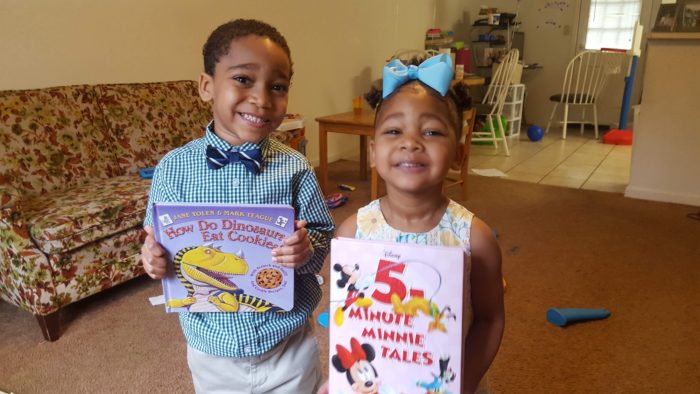

We looked at the books in our warehouse as a very real lifeline that could tether children to their educational futures, to their love of reading, and even to their sense of self. The 20 schools and districts served by Books for Keeps are all serving populations that are 90 percent or more low-income. Our home community of Athens has a 30 percent child poverty rate, meaning that many families rely on school not just for a quality public education, but for meals, internet access, and books. In low-income communities, children are at increased risk of falling behind in school because of summer break, a phenomenon referred to as “Summer Slide.”
As of right now, children in Georgia and elsewhere have been out of school – some receiving remote instruction – for more than seven months. We’re no longer battling Summer Slide; researchers have started referring to the resulting loss of academic skills as COVID Slide, possibly wiping out an entire year of academic gains for some students.
And so, in March, we embarked on a plan to distribute books to children in the schools we serve using an online ordering process, with fulfillment and delivery of 53,000 books happening with the help of volunteers out of our Athens-based warehouse. Another 15,000 books were delivered via FedEx to children we serve in outlying counties, leveraging the resources and distribution network of a for-profit book wholesale partner.
We’re not web developers. We aren’t a major retailer. Nor are we logistics experts. And yet –
- We built, customized, and launched an e-commerce website in about five weeks, cataloging our inventory of books – many of them received from First Book – so students could browse by genre. This was done with the help of volunteers, supporters, a local tech startup called RoundSphere, and a lot of self-taught skills.
- We designed a process to fill orders of free books, using just 3.5 paid staff and a cadre of volunteers – while following strict safety protocols. We reopened our doors, determined to safeguard the health of our volunteers, staff, and clients, at a time when many retail operations remained shuttered.
- We devised a delivery system that leveraged partners, friends, and the know-how of fellow nonprofit agencies like our local Meals on Wheels affiliate.
In total, more than 5,300 orders were placed with us for a bag of 12 free books. We even packed extras for baby siblings. In the end, we delivered 68,500 books directly to students’ doorsteps between May and August.
This problem-solving spirit also allowed us to satisfy a long-held goal: to serve every single elementary school in our home county. This year threatened to bust that goal, but we made a promise to the last two schools in Clarke County, GA, that we hadn’t yet reached – and Books For Keeps keeps its promises.
It’s only possible with the partnership of organizations like First Book.
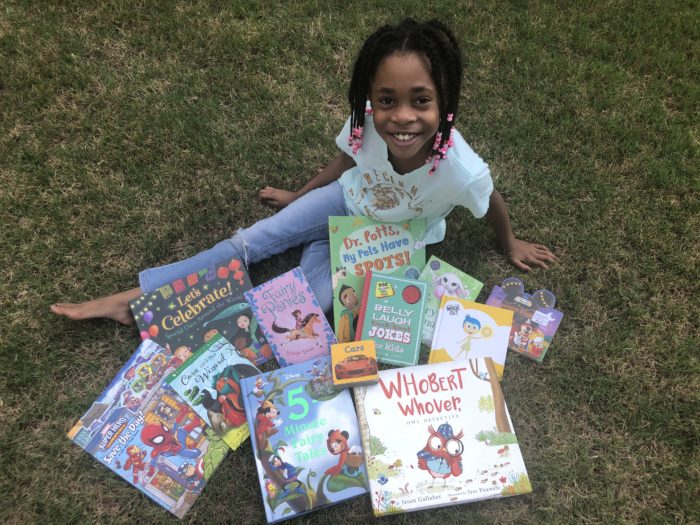

The purchasing power, the relationships, and the logistics network of First Book gives us access to books of remarkably high quality for a tiny fraction of their retail price.
Whenever someone offers to buy a book to donate to us, we gently and tactfully ask them to donate what they would have spent to us – more often than not, we can buy 10 books from First Book using what they would have spent on a single volume!
In just a decade, Books for Keeps has grown rapidly to serve nearly 9,000 students – and giving away 100,000 books annually – in part because of this purchasing power. We keep book costs low so that we can pay for warehouse space to process the books, and so that we can employ three folks who live and breathe this mission of creating access to books among children who might otherwise not own a single book.
As we barrel toward the end of 2020, we’re hard at work with our partner schools to determine how we’re going to safely and effectively reach every student in our service area next spring. One of the hard realities of our quick response this year was that we reached only two-thirds of eligible students. We weren’t quick enough to beat the buzzer at the end of the school year and reach more families.
We’re determined to problem solve and reach those families wherever they are this coming spring. After this summer, we have the logistics figured out. Thanks to First Book, we have the books. And with an abundant awareness of how books have enriched our own lives, we’ve got the determination to make it happen.

